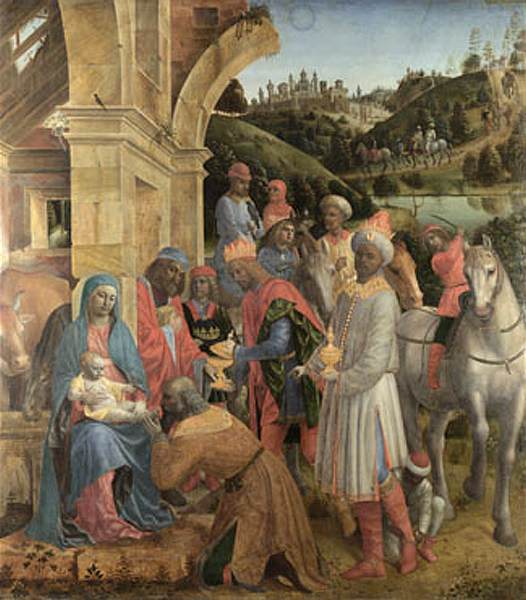Description
The painting "The Adoration of the Kings" by Vincenzo Foppa is a masterpiece of the Italian Renaissance that combines elements of late Gothic with the perspective and realism of the period. The composition of the painting is impressive, with the Magi kneeling before the Child Jesus in the center of the scene, while angels and shepherds surround the scene in an atmosphere of adoration.
The coloring of the painting is vibrant and full of life, with warm tones of red, gold and green contrasting with the darker tones of the clothing and backgrounds. Foppa's technique is masterful, and can be appreciated in the texture of the fabrics, the luminosity of the jewels and the expression of the characters.
The history of the painting is interesting as it was commissioned by the Visconti family in Milan and is believed to have been painted around 1464. The painting was considered one of the most important of the time and had a great influence on painting. later Italian.
A little known aspect of the painting is that Foppa included a series of symbolic details in the work, such as the flowers that surround the scene, which represent the purity and innocence of the Child Jesus. There are also a number of animals in the painting, such as an ox and a donkey, which symbolize humility and patience.
In short, "The Adoration of the Kings" is an Italian Renaissance masterpiece that combines technique, composition, and symbolism to create an impressive and moving work. The painting is an example of Foppa's artistic ability and its influence on later Italian painting.

